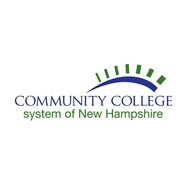webinar from NEBHE about supporting student creation of OER materials
by Deb Baker 3 years, 1 month agoSupporting students through the process of creating accessible, high-quality Open Educational Resources (OER)
Monday, March 29, 2021
10 a.m. - 11 a.m.
Join the New England Board of Higher Education’s Open Education Fellow Lindsey Gumb in a moderated conversation with panelists on how to best support students through the process of creating accessible, high-quality Open Educational Resources (OER).
As OER awareness continues to increase in postsecondary education, faculty are becoming more curious about how they might invite their students into the creation process, often referred to as Open Pedagogy. As editors and/or creators of OER, students have the opportunity to make existing course content more culturally responsive and representative of their own lived experiences. This collaborative process organically generates opportunities to encourage the diversification of the curriculum and reverse historical inequities perpetuated in commercial textbooks, which are far less likely to be inclusive and representative of underrepresented and marginalized voices.
Although Open Pedagogy provides a new and exciting opportunity to invite the student into the scholarly conversation, it’s crucial to scaffold this process to ensure we both respect student agency and help them create the most accessible, representative, high-quality OER.
Panelists and OER practitioners Hannah Davidson, Accessibility Specialist at Plymouth State University, Will Cross, Director of the Copyright & Digital Scholarship Center in the NC State University Libraries, Stacy Katz, Assistant Professor and Open Resources Librarian-STEM Liaison at Lehman College, CUNY, and Steel Wagstaff, Educational Product Manager at Pressbooks will share their expertise and relevant experiences concerning topics like author agency, privacy, accessibility, and copyright & fair use.
Who should attend:
This webinar is intended for faculty, librarians, and anyone interested in understanding the necessary considerations to best support students through the sometimes complex process of sharing their intellectual property under a Creative Commons license.
